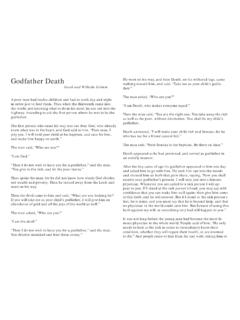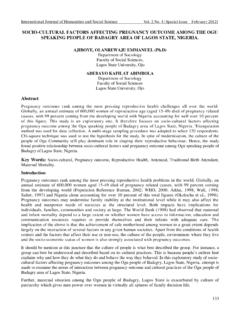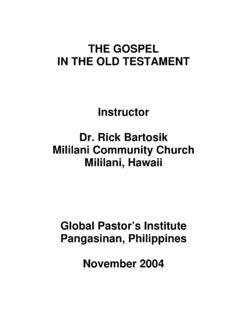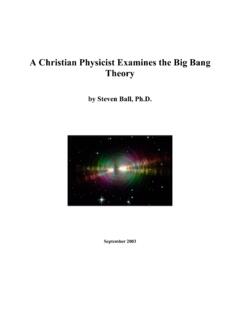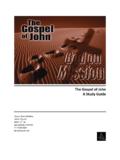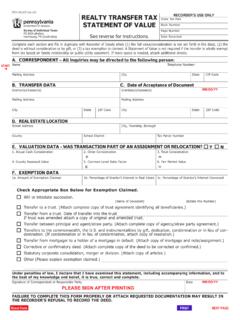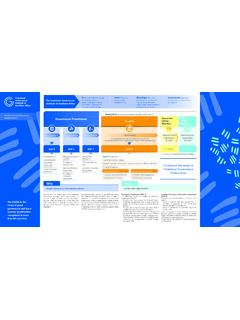Transcription of Women’s Roles in Puritan Culture - davidglensmith.com
1 Revised: || English 2327: American Literature I || D. Glen Smith, instructorWomen s Roles in Puritan Culture2 Time Linerevised: || English 2327: American Literature I || D. Glen Smith, instructor1630 It is estimated that only 350 to 400 people are living in Plymouth Roger Williams founds Providence Plantation (Rhode Island) It is decreed that colonial Puritan women can not speak in Anne Hutchinson put on trial and exiled from Massachusetts Bay Colony1643 United Colonies of New England is formed, one of the first notions of a collected governmental body1649 England becomes a Commonwealth; Oliver Cromwell made Lord Protector1650 Population within the colonies of Plymouth Colony, Rhode Island, and New Haven total about 1,500 Providence Plantation abolishes slavery within its colony1660 Charles II resumes monarchy in England, eleven years after father s executionFebruary 1692 / May 1693 Witch Trials in Salem Village, Ipswich, Andover and Salem : || English 2327: American Literature I || D.
2 Glen Smith, instructorBreakdown of the New England Population:Patricia Scott Deetz and James Deetz report in their essay, Criminal Justice inColonial America, 1606-1660, between 1620 - 1630 roughly 350 - 400 peoplelived in Plymouth Colony. They were scattered in several small and isolated authors later quote Bradley Chapin who estimates that in the year 1650,among the colonies of Plymouth Colony, Rhode Island, and New Haven all had atotal population of about 1,500 : || English 2327: American Literature I || D. Glen Smith, instructorAs can be guessed, men and women had separate Roles in Puritan society. They have in-place a hierarchal system; women served as secondary subjects to their husbands. In some extreme cases women were viewed intellectually beneath male-children. Despite the fact everyone is stained with original sin, women carry a heavier burden due to the depiction of Eve s actions in the Garden of Eden from the Old Testament.
3 Her actions were a corruption extended to all women. As of 1636 colonial Puritan women officially could not speak in church. They had to be silent throughout the service. Furthermore, women could not lead discussion on matters of theology except in cases of all-female prayer s Roles5revised: || English 2327: American Literature I || D. Glen Smith, instructor On a positive note, women were allowed to read scriptures. The Puritans believed everyone and anyone should be able to read from the books of the Bible. Their views of education were somewhat progressive in this area. For the Puritans, stressing the role of community and family strengthened their religious foundations. Through cooperative labor and creative work, the individual s worth to the community heightened. Thus a woman served a purpose under the divine plan of the English Colonies. She embodied a portion of individuality, capable of serving God and the community effectively.
4 (Albeit, her role was limited only to mothering and controlling household functions. Women were not allowed publicly to interpret the scriptures.) Women s Roles6revised: || English 2327: American Literature I || D. Glen Smith, instructorWomen s Roles This system created an emphasis for each individual s need to study the self, the world, and the Bible so as to attain spiritual certitude and moral rectitude (43). Each individual sought a purpose in life, something to demonstrate one s worthiness and serve both the public and the personal good. At the same time, he was to recognize his total dependence on God. Once he had done both, he was to develop the virtues of faithful labor, humility, cheerfulness, modesty, and when necessary resignation (1). 7revised: || English 2327: American Literature I || D. Glen Smith, instructorMassachusetts Body of Liberties The first code of law adopted December 10, 1641, contains approximately 94 resolutions, now known as the Massachusetts Body of Liberties.
5 Based on the English common law, it displays the patriarchal Culture s conservative outlook towards the civil liberties of women. Articles 79 and 80 pertain specifically to the legal rights of women: 79. If any man at his death shall not leave his wife a competent portion of his estate, upon just complaint made to the General Courts she shall be relieved. 80. Every married woman shall be free from bodily correction or stripes by her husband, unless it be in his own defense upon her assault. If there be any just cause of correction, complaint shall be made to authority assembled in some court, from which only she shall receive it (166). Massachusetts Body of Liberties. The Annuals of America: 1493-1754, Discovering a New World. Vol. I. Mortimer Adler, Ed. London: Encyclopedia Britannica, Inc., 1976. : || English 2327: American Literature I || D.
6 Glen Smith, instructorWomen s RolesWomen still held the status as second-class the wilderness, their subjectification was divinely sanctioned for possession by mankind. Overall, New England stressed female ambition as sinful, using Judeo-Christian myths surrounding Eve as a supporting example. Women s writing, as a result, limits itself severely during the sixteenth and seventeenth centuries. 9revised: || English 2327: American Literature I || D. Glen Smith, instructorIn 1637, Plymouth Colony Governor John Winthrop placed Anne Hutchinson ontrial for preaching doctrine contrary to the Puritan beliefs. Her case was a major conflict in the settlement; generally it is agreed she fell victim to the expectations of the Puritan community surrounding the role of women in their society. She mainly promoted the right for women to interpret and speak their feelings regarding biblical matters.
7 In particular, Hutchinson challenged the standard interpretation of the story of Adam and Eve. Her proposal runs counter to the notion that women are the cause of original sin; this is the cornerstone of Puritan beliefs. In Massachusetts she assumed the role as an unauthorized minister of a church discussion group. Originally it included only women, but a few men began attending her talks. This is where she began to become more noticed. Her home study group gathered as much as 80 people according to historian Robert Hutchinson10revised: || English 2327: American Literature I || D. Glen Smith, instructorAnne Hutchinson Hutchinson spoke her mind freely within the context of a male hierarchy unaccustomed to outspoken women. The extent to which she was persecuted was perhaps proportional to the threat the rulers saw in her, considering the many people who were willing to listen to and follow her and the threat that she may have posed.
8 She was an avid student of the Bible which she freely interpreted in the light of what she termed her divine inspiration. She actually adhered to the principles of Puritan orthodoxy. However, it is the slight changes she proposed which got her in trouble she held enormously progressive notions about the equality and rights of women, in contradiction of both Puritan and prevailing cultural attitudes. Perhaps her situation was more volatile to the Puritan elders: a woman preaching was more a sin than a man like Williams preaching his opposing views. 11revised: || English 2327: American Literature I || D. Glen Smith, instructorIronically, she was lucky she avoided similar consequences of the infamousSalem Witch Trials which occurred between February 1692 and May 1693: over 150 people were arrested and imprisoned nineteen of this group were executed on the grounds of felony of witchcraft: fourteen women and five men were hanged 0ne man refused to enter a plea and was crushed to death under heavy stones in an attempt to force him to do so at least five more of the accused died in prisonAlthough labelled as Salem, the trials included individuals from four smallvillages surrounding the Salem Witch Trials12revised: || English 2327: American Literature I || D.
9 Glen Smith, instructorSalem Witch TrialsTo put it into a better perspective, it is important to realize the Puritans believed God and His angels interacted with the living world, sometimes in invisible forms, sometimes in disguised human forms. Likewise, Satan and his devils tried to intervene in the natural world, with illicit means. His evil nature was set on destroying the morality of the Puritan community and overthrowing their God punished those he found sinful whenever He felt inclined: loss of crops sickness in livestock early death in children bad weather all were typically examples of the wrath of God. 13revised: || English 2327: American Literature I || D. Glen Smith, instructorCotton MatherA minister from Boston, Cotton Mather, wrote about the Salem trial incidents in:The Wonders of the Invisible World: Observations as Well Historical as Theological, upon the Nature, the Number, and the Operations of the Devils (1693).
10 A firm believer in the supposed powers of witches, in this text Mather goes to elaborate retelling of reports in the New World. Mather collects elaborate, diverse stories of dealings with witches and devils. He also documents the proper way for determining a witch (see page xxv). One example from his research states: If after Cursing there follow Death, or at least, some mischief: for Witches are wont to practice their mischievous Facts, by Cursing and Banning: This also is a suffiecient matter of Examination, tho not of Conviction (xxv).14revised: || English 2327: American Literature I || D. Glen Smith, instructorAmerican folklorist and historian, Richard M. Dorson comments in his book America in Legend: belief in demons and witches and narratives illustrating their magical and diabolical deeds lie at the heart of folklore. The Mathers and their fellow Puritans accepted this folklore and incorporated it into their covenant theology.


